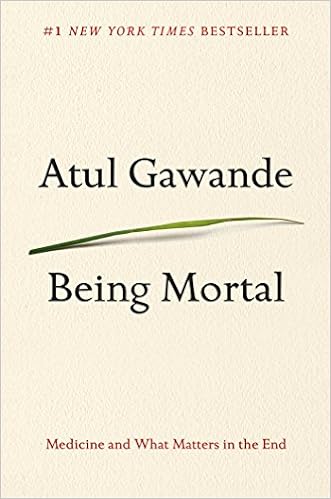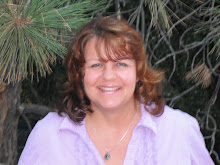 Being Mortal by Atul Gwande.
Being Mortal by Atul Gwande. I would put this book on my top 20 books I've ever read list.
It matters not if a book is fiction or non-fiction, some books just make you feel elevated when you read them. This is one of those books.
For me, reading this book was an experience. I cried. I learned. I was inspired. I repeatedly wrote down quotes from the book because the way Dr. Gawande writes is so beautiful. His words resonate with me.
This book interested me because my mother is 92 years old, I'm a licensed nursing home administrator and, at age 56, I'm starting to realize that some day I'll be old. The book is about how people experience the end of their lives in America. Gwande draws on his own experience with terminal patients. He also relates the discouraging research regarding nursing homes and assisted living facilities; but he reports some encouraging programs that have arisen in these sectors over the past couple of decades. He relates some of the important things he's learned from hospice and palliative care providers.
Here are just a few of my favorite quotes from the book:
p. 409
“At least two kinds of courage are required in aging and
sickness. The first is the courage to
confront the reality of mortality – the courage to seek out the truth of what
is to be feared and what is to be hoped.
Such courage is difficult enough. We have many reasons to shrink back
from it. But even more daunting is the second kind of courage – the courage to
act on the truth we find. The problem is that the wise course is so frequently
unclear. For a long while, I thought that this was simply because of
uncertainty. When it is hard to know what will happen, it is hard to know what
to do. But the challenge, I’ve come to see, is more fundamental than that. One
has to decide whether one’s fears or one’s hopes are what should matter most.”
p. 439
“Technological society has forgotten what scholars call the
“dying role” and its importance to people as life approaches its end. People
want to share memories, pass on wisdoms and keepsakes, settle relationships,
establish their legacies, make peace with ‘god, and ensure that those left
behind will be okay. They want to end their stories on their own terms. This
role is, observers argue, among life’s most important, for both the dying and
those left behind. And if it is, the way we deny people this role, out of
obtuseness and neglect, is cause for everlasting shame. Over and over, we in
medicine inflict deep gouges at the end of people’s lives and then stand
oblivious to the harm done.”
p.484
“If to be human is to be limited, then the role of caring
professions and institutions – from surgeons to nursing homes-ought to be
aiding people in their struggle with those limits. Sometimes we can offer a
cure, sometimes only a salve, sometimes not even that. But whatever we can
offer, our interventions, and the risks and sacrifices they entail, are
justified only if they serve the larger aims of a person’s life. When we forget
that, the suffering we inflict can be barbaric. When we remember it the good we
do can be breathtaking.”












1 comment:
I hope this finds you and yours doing well. May we display your header on our new site directory? As it is now, the site title (linked back to its home page) is listed, and we think displaying the header will attract more attention. In any event, we hope you will come by and see what is going on at SiteHoundSniffs.com.
Post a Comment